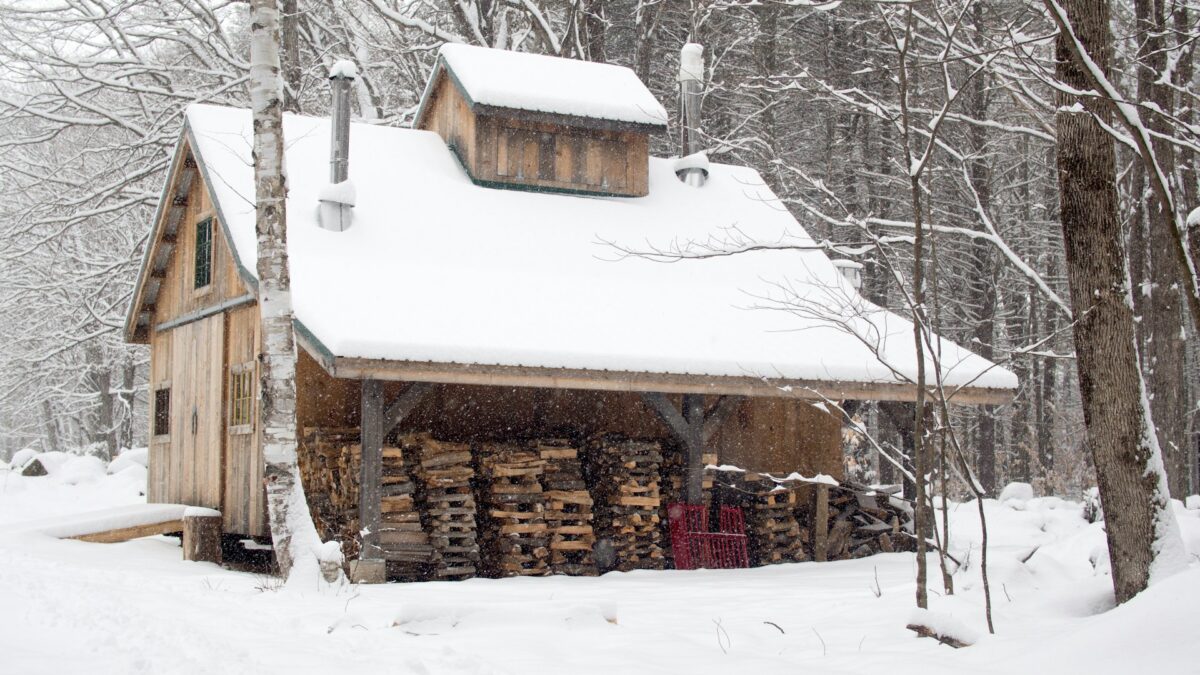More than 100 South Dakota landowners are faced with eminent domain lawsuits as a major carbon capture company constructs a more than 2,000-mile pipeline spanning the upper midwestern plains.
The pipeline is a project by Summit Carbon Solutions, with the goal of extracting CO2 emissions from midwestern ethanol plants and injecting the liquified gasses deep underground in North Dakota. A process known as carbon sequestration, the pipeline is an effort from the ethanol industry to capitalize on tax incentives offered by reducing corporations’ carbon footprint.
Litigation over the pipeline’s encroachment on private property is now underway across nine counties in the state as rural residents object to the project on their land. Surveyors with Summit Carbon Solutions, however, are reportedly showing up on property while lawsuits remain pending. And the state’s Republican governor, Kristi Noem, is nowhere to be found.
Eminent Domain Is Imminent
On Tuesday, Jared Bossly, a farmer in the state’s northeastern Brown County who is opposed to the project crossing his property, reportedly found surveyors from the firm drilling a rig deep underground in the middle of his crop field. Bossly explained to Substack reporter Greg Price how the construction of the pipeline threatens the productivity of his 2,000-acre farm.
“The route would force them to bulldoze many of the trees he has planted, jeopardizing the safety of his cows by removing the windbreaks used to protect them,” Price wrote. “He also said that the topsoil is only about a foot deep, which means moving it around will likely prevent crops from growing there again.”
According to The Epoch Times, surveyors with the carbon capture firm have moved forward with the intrusive inspections accompanied by armed security across South Dakota.
The company is now exploiting the controversial process of eminent domain to strip landowners of their rights to protest the project on their own ground. South Dakota lacks protections for residents to keep companies such as Summit Carbon Solutions off their property until lawsuits are settled. In February, a committee in the Republican-controlled State Senate shot down legislation passed in the House that would have prevented the firm from using eminent domain to capture land rights.
The Fifth Amendment of the Constitution dictates: “nor shall private property be taken for public use, without just compensation.” South Dakota has no clear guidelines for utilities to be granted access by eminent domain. Pipeline projects are decided by the circuit courts under the existing state regulations.
The pipeline proposed across five states has provoked a political uproar among farmers in South Dakota who are opposed to the project crossing their property. For months, farmers have organized and protested the corporate exploitation of eminent domain processes to orchestrate an aggressive land grab. Meanwhile, their governor, who campaigned on property rights in her first election to become the state’s chief executive, has remained absent.
Noem’s office did not respond to The Federalist’s request for comment.
“We haven’t heard anything,” said South Dakota State Rep. Karla Lems, who proposed the legislation that would have prevented the weaponization of eminent domain by corporate conglomerates.
“In a normal world with everything Kristi Noem has said and done, you would think she would be standing hand in hand with us on this issue. You would think she would be saying, ‘not on my watch,'” Lems told The Federalist. “Yet she was on Capitol Hill a week-and-a-half ago saying all of the same things [about a federal land grab] all of us have been saying about this project.”
Noem was in Washington D.C. last week to testify alongside GOP Wyoming Gov. Mark Gordon before the House Natural Resources Committee against the Bureau of Land Management’s proposed public lands rule. The new regulations establish a framework for conservation leases to preserve federal land and eliminate the bureau’s multiple use mandate.
“In my world, everybody matters,” Noem told lawmakers. “Doesn’t matter if you’re big or small or important or not important. You should listen to them, especially if they’re making a living off the land.”
[RELATED COVERAGE: New BLM Rules On ‘Conservation Leases’ Will Fundamentally Transform Public Land Management]
When it comes to farmers protesting the carbon sequestration pipeline, however, Noem has blown off every rally.
Family Ties
An examination of Noem’s inner circle, which includes close relationships with the state’s chambers of commerce, might reveal why the governor is silent on the corporate land grab in South Dakota.
Summit Carbon Solutions, an Iowa-based firm backed by South Korean investors, was a “Platinum Sponsor” of Noem’s second inauguration.
Noem’s son-in-law Kyle Peters is also a registered lobbyist for Gevo, a “Colorado-based renewable chemicals and advanced biofuels company.” Last summer, Gevo bought 245 acres near South Dakota’s Lake Preston to build a jet fuel plant. In February, the company partnered with Summit Carbon Solutions to handle the new plant’s CO2 emissions. Peters published a post on LinkedIn celebrating a legislative day at the state capitol five months ago, around the same time lawmakers in the upper chamber torpedoed legislation to protect farmers from eminent domain.
Farmers Face Government-Backed Environmental Despotism
South Dakota farmers are engaged in the same fight Noem righteously described in Washington.
“This rule is just one of many that highlights an example of an overreaching unelected bureaucracy attempting to perpetuate radical environmental policies that ignore common sense,” Noem said on Capitol Hill last week. “They ignore stewardship practices that have been practiced on our land for generations.”
Private landowners who have been stewards of their soil for generations are being threatened by a radical environmental movement demanding carbon sequestration by way of a pipeline. Pipeline sequestration itself, however, also carries its own environmental risks.
Three years ago in rural Mississippi, a pipeline explosion filled the air with a dense concentration of carbon dioxide that caused mass poisoning. The rupture forced 200 people to evacuate and sent at least 45 to the hospital. Cars were unable to operate due to the lack of oxygen in the air.
“It looked like you were going through the zombie apocalypse,” a local emergency director told National Public Radio.
There are, however, risk-free alternatives to sequestering carbon that don’t involve the construction of intrusive pipelines that carry dense poisonous gas across private land. In biological carbon sequestration, carbon dioxide is absorbed into soils, oceans, grasslands, and forests. Natural carbon storage in soils can be amplified by proper agricultural practices and responsible land management.
Whether carbon requires underground sequestration at all remains an open question. Atmospheric carbon has been shown to be a factor in proliferating forest growth, carrying with it a “greening” effect. Vegetation happens to grow faster in higher concentrations of carbon dioxide. As Michael Shellenberger noted in his book Apocalypse Never, “From 1981 to 2016, four times more carbon was captured by plants due to carbon-boosted growth than from biomass covering a larger surface of Earth.”









